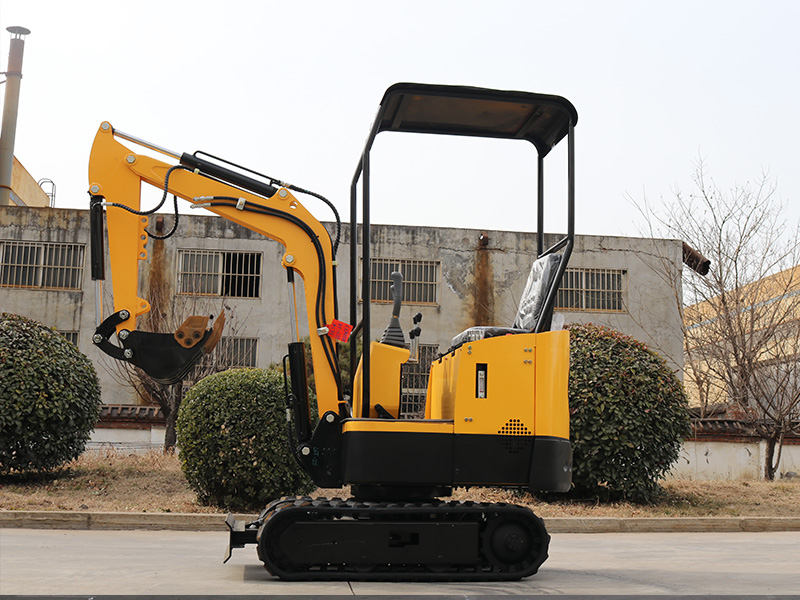
Small excavator uphill and downhill is by no means a simple thing. Not every operator is an old driver! In order to avoid accidents when driving a small excavator, don’t be anxious when going up and down the slope. You must master some operation skills.
First of all, the small excavator must be carefully observed before going up and down the slope to make a preliminary judgment on the actual angle of the slope and whether it is within the controllable range of excavator operation. If necessary, the upper half of the slope can be shaken to the lower half, so as to reduce the angle of the slope. In addition, if it has just rained, the road is too slippery to go uphill and downhill.
Most excavator operators are not used to wearing seat belts. When going downhill, if they don’t wear seat belts, they lean forward. I still want to remind you to develop good driving habits.
Whether climbing or downhill, we must first remove the surrounding obstacles, especially the relatively large stones. When climbing, not large stones will make the excavator track slip, and it is too late to have an accident.
When the small excavator is going downhill, the guide wheel should be in front to tighten the upper track, so as to prevent the danger caused by the forward sliding of the vehicle body under the action of gravity when parking. When the operating direction of the joystick is opposite to the traveling direction of the equipment, it is easy to cause danger.
When the small excavator goes up and down the slope, there is another point that needs special attention: put down the bucket of the small excavator and keep it about 20 ~ 30cm away from the ground. When there is a dangerous situation, you can immediately put down the working device to keep the small excavator stable and stop it from sliding downward.
The small excavator shall face the slope directly. It is better not to turn on the slope, which is easy to cause rollover or landslide. Before driving on the ramp, it is necessary to check the hardness of the ramp surface. Whether going uphill or downhill, remember that the cab must face the forward direction.
When going downhill, the small excavator shall keep moving at a constant speed, and the speed of the crawler shall be consistent with that of the boom, so as not to cause excessive bucket support and lead to the suspension of the crawler.
The small excavator should preferably be parked on a flat road. When it is necessary to park on a ramp, gently insert the bucket into the ground, open the excavation arm (about 120 degrees), and put a stop on the track. This ensures stability and non slip.